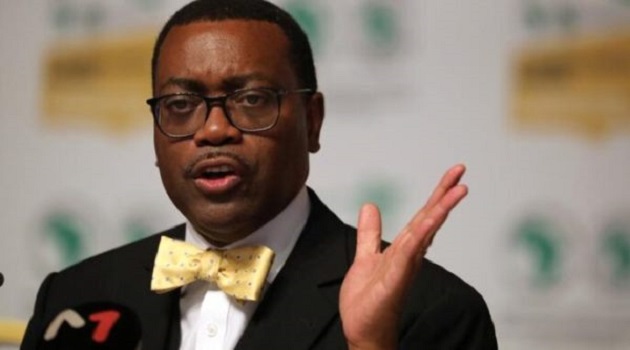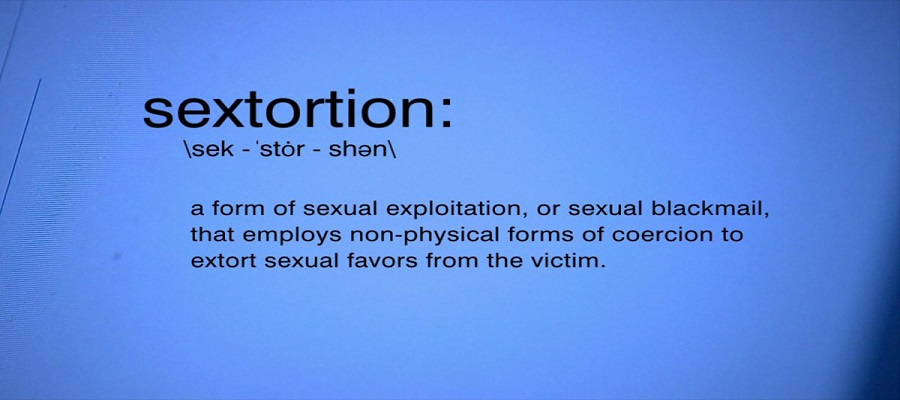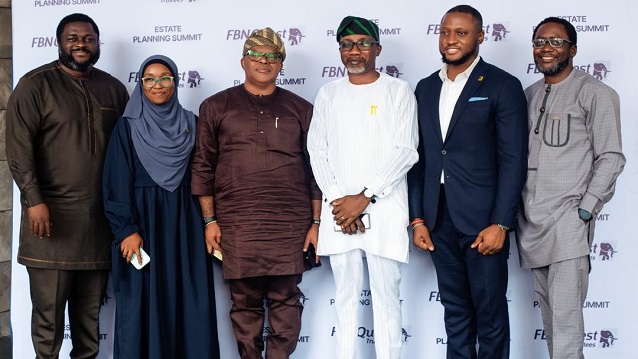General News
Dr. Adesina, AfDB Group President Calls for Media Transformation to Uplift Africa’s Global Narrative

Dr Akinwumi Adesina, the President of the African Development Bank Group, delivered an impassioned plea for more balanced media coverage of Africa and its development, noting it was critical for changing false narratives.

Adesina said this on Thursday in a keynote speech to the All Africa’s Media summit in Nairobi, attended by nearly 300 participants from across the continent. He praised the crucial role the media plays in strengthening democracy and advancing inclusivity.
The Bank Group president said there were many positive developments in Africa yet the continent continues to suffer misrepresentations which undermine its economic progress and investment potential.
“Despite the significant progress within our continent, the prevailing media narrative often focuses on negative stereotypes, overlooking the substantial advancements and resilience Africa demonstrates,” he added.
Adesina said there was plenty of positive news to report about and highlighted the continent’s economic resilience regional and amid global challenges. He said that in 2023, Africa’s growth rate surpassed the global average, with 11 African nations ranked among the world’s fastest-growing economies.
Adesina referenced a 2021 Africa No Filter Report, which revealed significant adherence to outdated and negative clichés in media reports about Africa. “It’s time for change,” he declared. “We must reshape the narrative about Africa to reflect its true spirit and potential.”
He emphasised the critical nature of information and its ability to have a profound negative impact on development and investor perceptions even though an in-depth investigation by Moody’s Analytics had shown the continent was much less of a risk than many other continents.
“We must promote a balanced view that highlights both the challenges and the many successes of Africa. It’s about changing perceptions and showcasing Africa as a continent rich with opportunity and innovation.”
The Bank Group President also spoke about the challenges and transformations within the media sector, highlighting the impact of digital technology.
“The media landscape has dramatically shifted with the rise of the internet and mobile technology, leading to a proliferation of digital platforms,” Adesina declared.
“While this has democratised information, it has also complicated issues, the distinction between fact and fiction can become blurred.”
To counter unfair and unbalanced narratives, Adesina urged the creation of a powerful, globally respected African media and proposed strategic collaborations among regional financial institutions to support this cause, emphasising the need for media to act as a catalyst for development.
“We need to celebrate and promote the continent’s successes, turning the tide against the longstanding stereotypes that have clouded the global view of Africa… What you call yourself, is the name others will subscribe to you.”
“For as long as we continually denigrate ourselves and play into the hands of those who control the narrative about Africa, we will be stuck with a label that does not belong to us,” he concluded.
He highlighted the African Development Bank’s own successes which included maintaining a AAA credit rating and launching groundbreaking financial initiatives that have earned it respect as an innovative and successful multilateral development bank.
“We have proven that Africa can lead with innovation and strength in the global financial landscape,” the President remarked. “Yet, these achievements receive minimal attention compared to the persistent focus on Africa’s challenges.”
Adesina added that just one month ago, the Bank launched a landmark $750 million hybrid capital instrument, again with a Triple A rating, which was oversubscribed eight times. He described this as a huge “testament to the confidence and trust in Africa’s burgeoning financial capabilities.”
He pledged that the African Development Bank remained committed to supporting initiatives that would help the media present a more balanced and progressive portrayal of Africa and support its economic development.
In a discussion with Julie Gichuru of the Mastercard Foundation after his address, Adesina said Africa was blessed with energy sources, but millions remained without electricity. “This must change,” he said.
“We cannot industrialise in the dark, we cannot develop in the dark. Our children cannot be competitive in a world of darkness,” he concluded.
General News
UBA Marks 75 Years of Excellence at 65th AGM

United Bank for Africa (UBA) celebrated its 75th anniversary during its 65th Annual General Meeting, highlighting decades of resilience, innovation, and commitment to service.

Mr. Tony Elumelu, Group Chairman, reflected on the bank’s journey, emphasizing its ability to adapt and transform over three-quarters of a century.
He announced UBA’s impressive financial performance for 2024, including a gross revenue of ₦3.2 trillion and profit after tax of ₦767 billion.
The bank’s total deposits grew by 42% to ₦24.6 trillion, while its loan book expanded by 35% to ₦7.5 trillion.
Mr. Elumelu also addressed UBA’s efforts to meet the Central Bank of Nigeria’s directive to increase the minimum capital requirement for international commercial banks.
Following a successful rights issue, UBA’s capital now stands at ₦355.2 billion, with plans to raise the remaining ₦144.8 billion later this year.
GMD/CEO, Mr. Oliver Alawuba, reiterated UBA’s commitment to enhancing customer experience through digital banking.
He highlighted the bank’s focus on leveraging artificial intelligence and advanced technology to serve its 45 million customers across 24 countries more effectively.
UBA’s dedication to environmental stewardship and social progress was evident in its 2024 initiatives, including planting 4,550 seedlings to offset carbon emissions and distributing over 13,000 books through the Read Africa Initiative.
The bank’s efforts were recognized with multiple awards, including “Bank of the Year” in five African countries.
As UBA continues its journey, Mr. Elumelu and Mr. Alawuba expressed gratitude to shareholders, customers, staff, and regulators for their unwavering support.
The bank remains committed to innovation, financial inclusion, and driving economic growth across Africa and the globe.
General News
FBI Sends Team to Nigeria to Track Down ‘Sextortion’ Scammers

Sextortion scams have become so widespread that the Federal Bureau of Investigation (FBI) is sending agents to Nigeria to help track down the perpetrators.

The agency’s “Operation Artemis” has led to the arrest of 22 Nigerians, half of whom are “directly linked” to sextortion incidents in which victims died by suicide.
Sextortion scams often begin on social media, where perpetrators pose as attractive young women to lure victims—typically unsuspecting teenage boys—into sending nude photos or explicit videos.
Once the images are obtained, the scammers turn to blackmail, threatening to leak the content unless the victim pays up.
In some cases, the sextortion results in teenage victims taking their own lives over fear of the nudes leaking.
In Thursday’s announcement, the FBI noted it’s been “observing a significant increase over the last three years in financially motivated sextortion schemes targeting young males ages 14-17, resulting in more than 20 minor victims dying by suicide.”
The agency is also facing a 30% year-over-year increase in sextortion-related tips.
“According to the FBI’s Internet Crime Complaint Center or IC3, there were over 54,000 [extortion-related] victims in 2024, up from 34,000 in 2023,” it said.
“Over the last two years there have been nearly $65 million dollars in financial losses due to this crime.”
In response, the FBI says 55 agency field offices came together to identify “nearly 3,000 victims of financially motivated sextortion,” which led investigators to track down the culprits in Nigeria.
The US has since extradited at least three suspects from Nigeria.
“These subjects will now be held accountable in the American justice system, with more subjects still awaiting extraditions in Nigeria,” the FBI added.
General News
FBNQuest Trustees Hosts Estate Planning Summit in Port Harcourt

FBNQuest Trustees Limited, a subsidiary of First HoldCo Plc, provider of trust solutions to individuals, corporate and government institutions, recently hosted its inaugural Estate Planning Summit in Port Harcourt.

The maiden event, themed: Wealth Preservation and Transfer without Hassle, was organised to strategically enlighten and empower the participants with the necessary knowledge required to seamlessly manage and successfully transfer their assets and legacies to their beneficiaries.
Speaking at the event, the Acting Managing Director, FBNQuest Trustees, Babajide Fetuga, stressed the critical importance of seeking professional guidance on estate planning, preservation and transfer of wealth to successive generations and other beneficiaries. He stated that a professionally drafted estate plan gives no room for any form of ambiguity; hence, it provides clear directives on what to do at any time.
‘’The potential consequences of not having an estate plan include perennial family disputes and protracted court cases, which may result in a huge financial burden and foster long-lasting resentments among loved ones if proactive steps are not undertaken to protect individuals, families and loved ones from avoidable stress.
‘’Understanding the values of wealth preservation is crucial. It is vital to recognize the importance of having a strategic estate planning blueprint, and we are determined to educate you with knowledge that not only informs but inspires you to take the necessary actions as you move forward,” he added.
FBNQuest Trustees is dedicated to promoting effective estate planning solutions. The company has a track record of successfully hosting estate planning summits in Abuja, Lagos, Minna and Ibadan and continues to emphasize the importance of thoughtful planning through initiatives like the Legacy Series Campaign and the Legacy Room podcast.
The summit featured industry experts who delivered valuable insights on the significance of wealth preservation and transfer, addressing the residents of Port Harcourt and its environs. The discussions focused on practical approaches and proactive measures attendees can adopt to manage their estates effectively and minimize potential future challenges.

 Telecom2 days ago
Telecom2 days agoMTN Appoints Egerton Idehen as Chief Broadband Officer

 General News2 days ago
General News2 days agoUBA Marks 75 Years of Excellence at 65th AGM

 E-Business3 days ago
E-Business3 days agoALX Nigeria Launches 2025 Ventures Incubator, Premieres Pan-African “Do Hard Things” Finale

 Telecom2 days ago
Telecom2 days agoMTN Group Suffers Cyberattack

 Telecom2 days ago
Telecom2 days agoMTN Foundation Launches Skills Academy to Bridge Nigeria’s Digital Skills Gap

 Telecom2 days ago
Telecom2 days agoDigital Realty Expands ServiceFabric to Nigeria, Enhancing Global Interconnectivity

 Telecom2 days ago
Telecom2 days agoLegend Internet Plc Makes History as First Indigenous Telecom Firm on NGX
- Telecom2 days ago
Tribunal Upholds FCCPC’s $220m Fine against Meta, WhatsApp
























